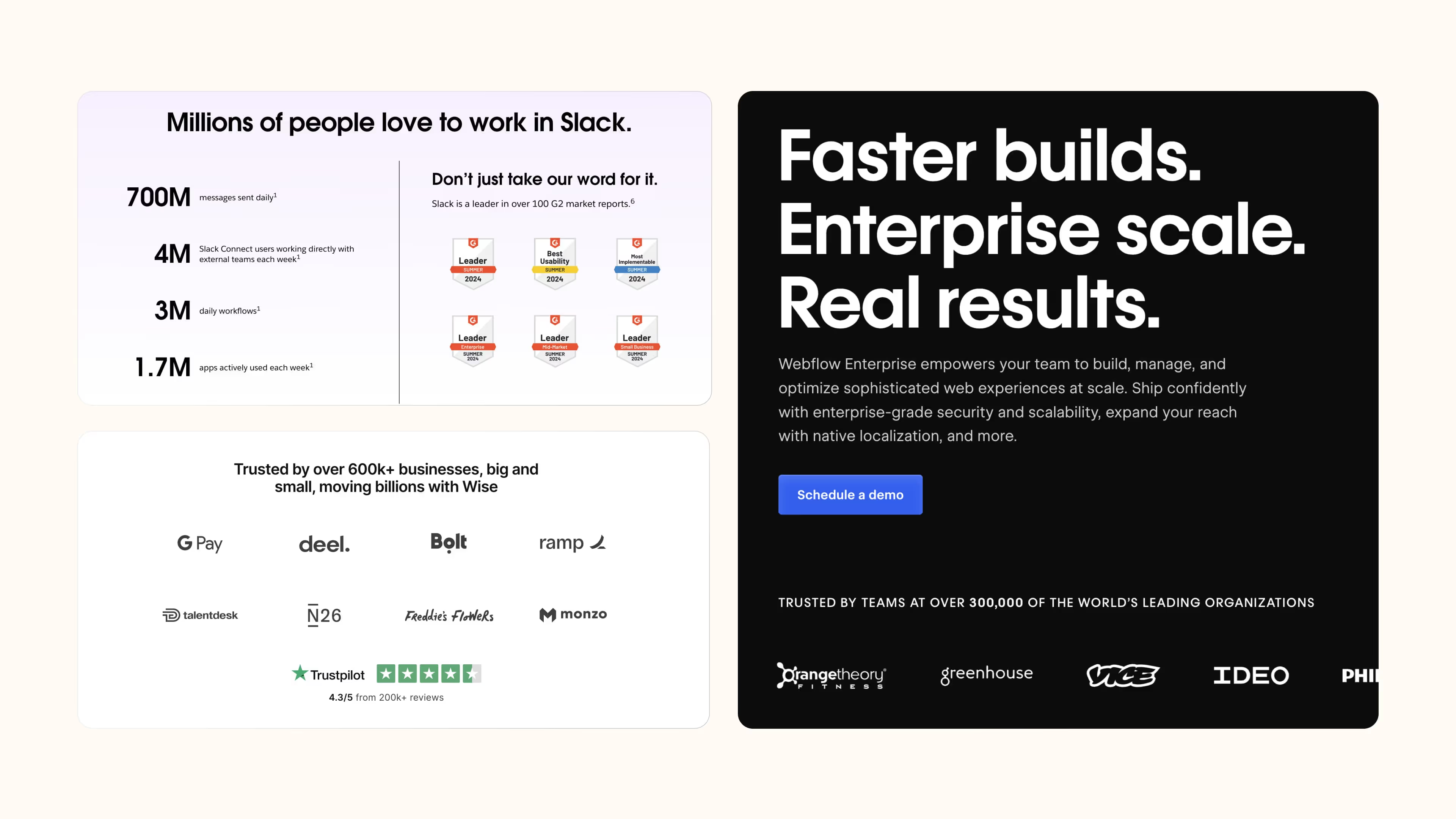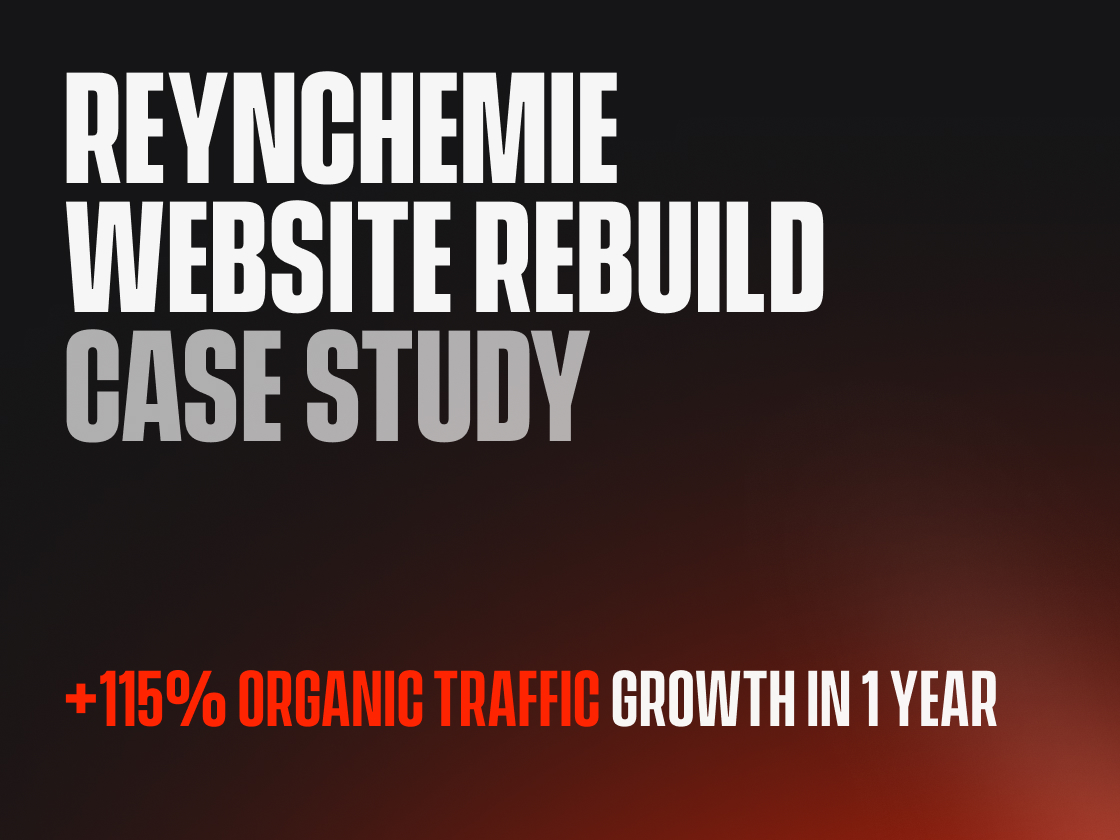Common Website Mistakes Businesses Make (and How to Fix Them)

1. Lack of a Clear Value Proposition in the Heading Tag
Your headline is the first thing visitors see. It should immediately tell users what your business does and how it can solve their problems.
Common Mistakes:
- Using vague or confusing language.
- Focusing on features instead of benefits.
- Failing to communicate your unique value right away.
How to Fix It:
- Be clear and direct: Use your H1 heading tag to state exactly what your business offers.
- Focus on benefits: For example, instead of “We design websites,” say, “Custom Webflow websites that boost conversions and SEO.”
- Keep SEO in mind: Your headline should include keywords relevant to your business, helping you rank higher in search engines.
-

2. No Social Proof to Build Trust
Visitors need to feel confident that your business can deliver on its promises. Social proof helps build that trust.
Common Mistakes:
- Not displaying testimonials or reviews.
- Missing case studies or client logos.
- Ignoring opportunities to show credibility (e.g., certifications or awards).
How to Fix It:
- Add customer testimonials: Use quotes from satisfied clients.
- Showcase recognizable client logos: This builds instant credibility.
- Highlight case studies: Show real-world examples of how you’ve helped past clients achieve results.
- Place social proof near CTAs: For maximum impact, position testimonials near buttons like “Contact Us” or “Request a Quote.”

3. Failing to Provide Data or Case Studies to Prove Your Worth
Claims alone don’t convince visitors. They want to see the real impact of your services or products.
Common Mistakes:
- Making claims without evidence.
- Failing to show measurable results.
How to Fix It:
- Use data-driven proof: Share metrics like “Increased conversions by 40%” or “Boosted organic traffic by 50%.”
- Highlight case studies: Tell success stories that show before-and-after results.
- Incorporate visuals: Charts or graphs can make data easier to digest.
By providing concrete examples, you allow visitors to envision the value you can bring to their business.

4. Not Enough Call-to-Actions (CTAs)
A well-designed website won’t convert if it lacks clear direction. Your visitors need to know exactly what to do next.
Common Mistakes:
- Not including enough CTAs.
- Using vague CTAs like “Learn More” or “Read Here.”
- Placing CTAs in low-visibility areas.
How to Fix It:
- Use action-oriented language: Be specific with CTAs like “Get a Free Consultation” or “Start Your Project Today.”
- Place CTAs strategically: Ensure you have CTAs in key areas—above the fold, at the end of service pages, and next to testimonials.
- Repeat important CTAs: Don’t be afraid to repeat critical calls to action throughout your site.
CTAs guide your visitors through their journey, leading them from curiosity to conversion.

5. Not Capturing Data to Make Informed Decisions
To continuously improve your website, you need to understand how visitors are interacting with it. Without data, you’re guessing at what’s working and what isn’t.
Common Mistakes:
- Not tracking user behavior or conversions.
- Failing to gather visitor contact information.
- Ignoring analytics data.
How to Fix It:
- Set up analytics tools: Use Google Analytics, Hotjar, or similar tools to track user behavior, bounce rates, and conversions.
- Use lead capture forms: Gather visitor information through forms or pop-ups offering valuable content.
- Make data-driven decisions: Regularly review metrics to identify areas of improvement, whether it’s slow-loading pages or underperforming content.
By leveraging data, you can make smarter decisions to optimize both user experience and conversion rates.

Conclusion
Avoiding these common website mistakes can make a massive difference in your online success. A well-structured site with a clear value proposition, ample social proof, data-backed results, strategic CTAs, and data-driven improvements will keep users engaged and drive more conversions.
Are you ready to revamp your website or build a new one in Webflow that’s optimized for SEO and conversions? Get in touch with us today to start your project!




